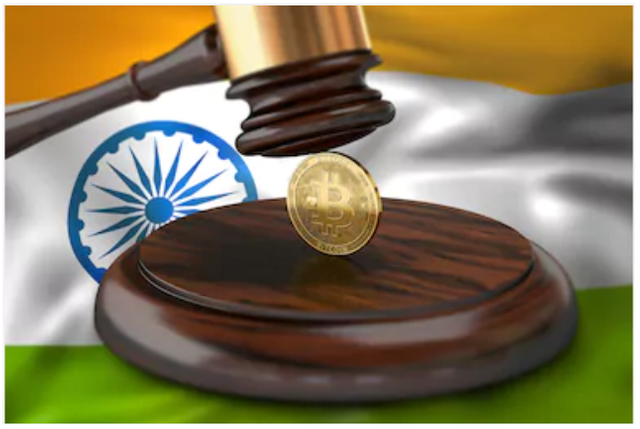Future of Bitcoin & Other Cryptocurrencies In India After RBI’s Ban
The Reserve Bank of India (RBI) has barred Indian banks from serving Bitcoins & cryptocurrency exchanges.

Believe it or not, The central bank (RBI) issued a press release that said:
“Technological innovations, including those underlying virtual currencies, have the potential to improve the efficiency and inclusiveness of the financial system. However, Virtual Currencies (VCs), also variously referred to as cryptocurrencies and crypto assets, raise concerns of consumer protection, market integrity, and money laundering, among others.
Reserve Bank has repeatedly cautioned users, holders and traders of virtual currencies, including Bitcoins, regarding various risks associated with dealing with such virtual currencies. In view of the associated risks, it has been decided that, with immediate effect, entities regulated by RBI shall not deal with or provide services to any individual or business entities dealing with or settling VCs. Regulated entities which already provide such services shall exit the relationship within a specified time. A circular in this regard is being issued separately.”
RBI has asked its own regulated entities (such as banks) to stop providing service to individuals or business entities dealing in cryptocurrencies for fiat (INR) on and off-ramps. Which means, you may not be able to buy/sell cryptocurrencies for INR through banks.
Peer-to-peer options are still open and the same has been mentioned by CoinSutra in detail here: RBI Bars Indian Banks From Facilitating Services To Crypto Related Individuals & Businesses.
But the agenda of this article is different.
It’s About The Future of Blockchain & Cryptocurrency In India
Here, I want to discuss the implications of the step by the Indian government and also how the scenario might play out in the coming days/weeks as well as long-term.
We acknowledge that the issue of Bitcoin and cryptocurrency regulation has been a persistent and painful problem due to its decentralized nature. Also, we empathize with the fact that government has done this to protect Indian consumers who are rather ignorant and often lack sufficient education regarding many obvious crypto-related MLM scams. The classic example is one of Amit Bhardwaj who scammed Indians as well as other people around the world.
But do you think RBI’s reaction is justified?
If you ask me, NO!
Instead, they should have put some more thought into this before taking such an extreme step to impend the innovation happening around cryptocurrencies and blockchain.
Well, you might argue this will stop undisclosed investments in cryptos and also paralyze money laundering happening through cryptocurrencies.
However, if there is a technical person who wants to get into the blockchain, the easiest way for him/her is to have the first-hand experience of dealing with BTC or ETH like currencies through exchanges in India.
But when a government does something like this, it kills the curiosity of the techie and hinders his indulgence in the technology.
This is like killing the minuscule blockchain or crypto market of India with your own hands.
And if that’s not enough, RBI says they will launch their own version of centralized digital INR on the back of the same tech i.e. blockchain, the growth of which they are impending with their own actions. And it even gives a hint that the government was unable to regulate decentralized cryptocurrencies in the right way which has forced them to take this extreme step.
But this is either intentional hypocrisy or simply ignorance of the fact that “Blockchain became blockchain because Bitcoin introduced it”.
And this is true because I highly believe that reducing exposure to cryptocurrencies like BTC or ETH will impend India’s growth in the global blockchain and crypto space.
That doesn’t mean that I support crypto scams. They need to be stopped but that can only happen through proper education. Ceasing the growth of many because few are misusing it is not the right thing to do.
Learning From Other Country’s Bitcoin Ban (Plus The Good Regulations)
India is not a new candidate in the list of countries banning Bitcoin or other cryptocurrencies. It is, in fact, the 8th country to do so.
China, as we all know, started cracking down on cryptocurrency exchanges and ICOs in the last quarter of 2017. And as the scenario stands there in China, Bitcoin and cryptocurrency exchanges are totally banned as Chinese government issued a similar message to Chinese banks to pack-up their services to any individual or business related to cryptocurrencies.
As a result, many big exchanges have fled China to seek shelter elsewhere as there are many cryptocurrency havens out there. Some of these big exchanges were BTCC China, Huobi, and OKCoin etc.
But that didn’t stop investors or innovators to play with or buy/sell cryptocurrencies. It dealt a great blow to the overall crypto market but there are alternatives that flourished. (We will talk about those alternatives further in the article from India’s perspective).
South Korea made its law more stringent but have no intention to ban or suppress cryptocurrency (market). Instead, if you are a government official in Korea, you are banned from HODLing or dealing with cryptocurrencies failing which you can face disciplinary charges.
Upvote this: https://steemit.com/free/@bible.com/4qcr2i
everything will be good